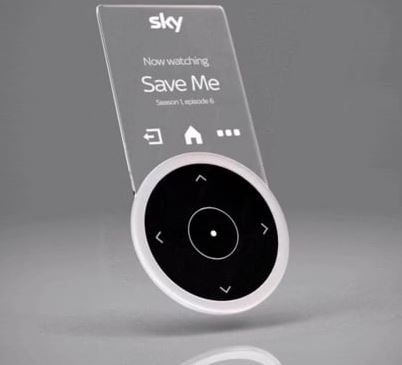Channel 4 ‘Human Test’ / 4Creative
Wednesday May 2, 2018 | Leave a comment

I can’t be the only one who vowed to avoid all weird-looking Channel 4 shows after seeing that episode of Black Mirror. (The one with the pig. We all remember it.)
And yet, watching its new ad for the third series of Humans, I’m tempted to break my own rule. It’s a refreshing break from what viewers normally expect in a trailer, communicating the storyline of all the episodes to date while also emphasising the urgency of the events to come in the new series. And all without actually mentioning the title of the show or any of its characters.
The spot is formatted as a public announcement from the fictional National Synth Detection Unit, or NSDU, informing viewers that they need to take a test to confirm that they’re human. Fans can take the test with an Amazon Alexa or Google Assistant device, including smartphones and tablets, where they will be asked a series of questions which indicate if they’re a ‘synth’ – a synthetic human-like robot used by humans as service machines. Those who complete the test will be directed towards the comprehensive website Channel 4 has created to promote the series, www.nsdu.co.uk, which comes complete with synth profiles, most wanted photos, and information about the NSDU.
Undoubtedly, a large part of the appeal of this campaign is the content of the series: a question posed in the human test, ‘if robots have feelings, should they be granted human rights?’, is something we may genuinely have to answer in the future. The science and technology of AI and robotics are developing fast. We’re already seeing debates over so-called ‘sex robots’ which are having a direct impact on their relationship to society – lawmakers in several countries are discussing banning the import of child-like sex robots because of concerns it would encourage actual abuse.
The campaign plays to this real-life relevance, giving fans an opportunity to literally engage with the sympathetic synths through the NDSU’s website. The ‘most wanted’ section features recurring characters from previous seasons who have rebelled against their owners and are now labelled dangerous, reminding viewers of what’s already happened, and building anticipation about what’s yet to come for them. Both the ad and the website augment the eerie feeling of watching the almost-totalitarian state behind the NSDU crack down on rebel synths and their human allies. It’s no accident that the NSDU logo follows the exact same colour scheme as the various departments of the real UK government, so that, despite knowing the NSDU is fictional, it feels real.
The increasing popularity of on-demand streaming services like Netflix, which offer not only the convenience of watching whenever you want but also the appeal of binging on your favourite shows that you haven’t seen in years (think Buffy the Vampire Slayer), mean live TV broadcasters have it harder than ever when it comes to creating ‘buzz’ about the premiere of new series and episodes.
Channel 4’s in-house creatives have shown themselves to be more than up to the task. ‘Human Test’ is only the latest in a series of innovative campaigns for new Channel 4 shows. Just last month, it rolled out a spot promoting the fictional ‘Azana Band’, a device which claimed to induce real emotional and physical feelings during virtual reality gaming, supported once again by a website purporting to sell the product.
These ads exceed at one of the most basic measures of a successful campaign: they increase engagement. If you’ve watched the show which is being advertised, you’re excited to see it come to life in a new way. And if you haven’t – you need to know what’s going on, even if you might regret your curiosity later. (Yes, I am talking about the pig again.) Weird, hyper-realistic campaigns which simulate dystopian near-futures are totally on-brand for a broadcaster with a reputation for fearlessness when it comes to tackling difficult social and political issues.




